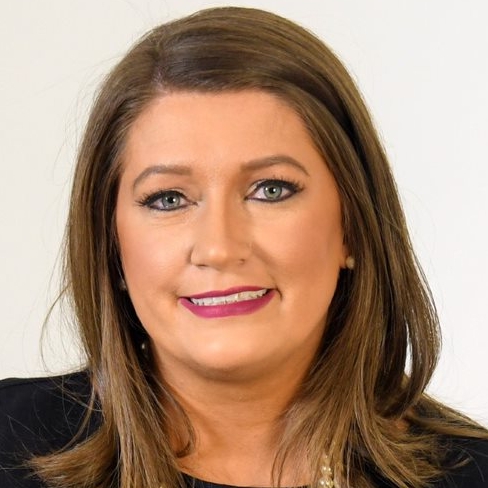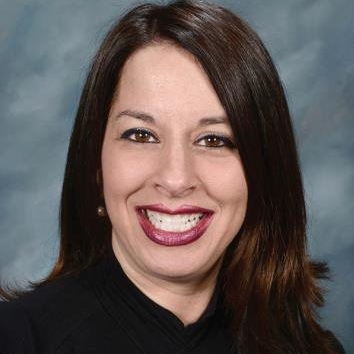How 3 healthcare organizations are focusing on access and transparency to drive revenue cycle performance

Three winners of HFMA’s 2021 MAP Award share their innovative and effective strategies to build a strong revenue cycle amid uncertainty.
This year’s winners of the Association’s MAP Award for Higher Performance in Revenue Cycle represent organizations of vastly different sizes and scope, yet they all share a commitment to improving price transparency and patient access. Their momentum toward change has helped them maintain robust revenue cycles, even during the uncertainty of the recent COVID-19 pandemic.
Here, revenue cycle leaders of three organizations — an integrated delivery system (IDS), an individual hospital and a critical access hospital (CAH) — describe how they are using innovative strategies to improve their organizations’ financial performance and patient experience.
Prioritizing price and network transparency
“When I think about pricing transparency, it really hits the trifecta of improving revenue, reducing costs and improving the patient experience,” said Sarah Knodel, senior vice president of revenue cycle for Dallas-based Baylor Scott & White Health, which won the MAP Award in the IDS category.

Knodel and her team partnered with clinical leaders on new processes and tools designed to help patients understand their out-of-pocket costs and improve point-of-service (POS) collections. This effort included rolling out their automated price estimation tool, which had already been adopted by the system’s hospitals, to hundreds of clinics within the health system. Knodel met with the president, CFO, chief medical officer and vice president of clinic operations in each region to explain the goal of the initiative and get their buy-in.
“It took a significant amount of collaboration to say, ‘Look, this is a priority,’” she said.
From 2018 through 2020, her team gradually rolled out the new process, which included conducting more than 200 training sessions for registration staff at the clinics (who don’t report to the IDS’s revenue cycle department). Training focused on educating patients about their financial responsibility and available payment options, including interest-free payment plans. As a result of their efforts, clinic POS collections have improved 47% since FY2017.
Network transparency also has been a focus after the revenue cycle team noticed an uptick in out-of-network denials and complaints from patients about not being notified for out-of-network care. Knodel partnered with a vendor to create a custom, real-time alert that notifies scheduling, pre-registration and registration staff if a patient is out of network. Once out-of-network patients are identified, staff can explain to the patients how their insurance works and inform them about the cost implications of proceeding with out-of-network care at the health system.
“We want to make sure we’re having that conversation at the earliest possible point in time,” Knodel said. “We had to really focus on scripting because we didn’t want to alienate our patients …. we wanted to make sure that we were educating them.”
Another change was the creation of a dedicated out-of-network team to negotiate one-time agreements with payers on behalf of patients requiring specialized services, such as open-heart surgery. Thanks to the revenue cycle team’s efforts, Baylor Scott & White Health
has seen an 88% reduction in scheduled out-
of-network volume since FY2017.
Knodel said her current priorities are optimizing net revenue, reducing the cost-to-collect (in part by leveraging automation) and improving the patient financial experience. Future initiatives include integrating price estimates into the patient portal and mobile app, so the estimates are automatically sent to patients 14 days in advance of their procedures and providing price guarantees for select services.
Knodel believes these and other innovative projects will help her team maintain a robust revenue cycle even during times of uncertainty like the ongoing pandemic. “You can’t wait until you’re in a crisis,” she said. “You’ve got to have the strong foundational pieces in place and strong, consistent leadership to help you manage during changing and challenging times.”
Ensuring better access for cancer patients
Improving the experience for cancer patients was a priority for revenue cycle leaders at The Valley Hospital in Ridgewood, New Jersey, which won the MAP Award in the Individual Hospital category.

“[Patients] had a great medical experience, and on the back end, we wanted to make sure that the revenue cycle experience went just as well, and that they felt happy,” said Josette Portalatin, assistant vice president of revenue cycle for Valley Health System.
To do this, Portalatin partnered with clinical leaders to create a team of oncologists, executive staff and nurses who met weekly for six months and then monthly. Together, they reviewed data on denials, charge capture and underpayment and identified process changes from scheduling to staffing. One change included hiring more staff to address the growing number of payer requirements related to authorizations, which helped improve access as well as payer yield and collections. The team also added a patient advocate in oncology to help cancer patients find assistance from drug companies to help cover the costs of medication.
Leaders at The Valley Hospital also rolled out an initiative focused on POS collections in patient access and the emergency department, increasing POS collections by $100,000 in FY2020. In both areas, they implemented new collection policies and practices and relocated staff under patient access leadership.

The Valley Hospital’s success comes from understanding the root causes of patient complaints and barriers to care, according to William Klutkowski, CFO and vice president of finance for Valley Health System. “We truly listen to the front end because that’s where most of the problems start,” he said.
Klutkowski said his finance team is eager to “get back to the norm as well as move forward.” In the future, making the most of available technology will be a priority.
In particular, the revenue cycle team plans to implement a patient engagement and financial technology platform to deliver a more personalized billing and payment experience for patients. The tool will allow the hospital to send digital bills and communicate with patients via text, emails and ringless voicemails based on their preferences. Patients also will receive denial explanations automatically and have the option to self-enroll in configurable payment plans.
Portalatin said her team also plans to implement artificial intelligence and automation into their patient intake processes. New tools will allow for online scheduling, electronic registration and online payment, boosting efficiency. The hospital also will add new software to automate precertifications and preauthorizations.
While technology is important, so are the people who keep the revenue cycle running smoothly. The revenue cycle team at The Valley Hospital has had a morale committee for the past 20 years. Each month, the group finds ways to celebrate employees — even when the team worked remotely during the pandemic. Their efforts have helped the revenue cycle team score in the 99th percentile for employee satisfaction.
Leveraging technology and an engaged staff

Cass County Memorial Hospital in Atlantic, Iowa, won the MAP Award in the CAH category for the first time in 2021. Cindy Petty, CRHCP, revenue cycle director for Cass Health, said developing metrics and engaging staff has been the key to their improved performance. In particular, sharing key performance measures and boosting staff productivity helped her team improve their net A/R by 30 days in FY2020. “There’s no reason to hide anything that we’re doing within the revenue cycle,” she said. “Staff have great ideas on how to improve processes.”
That transparency applies to patients as well. Prior to July 1, 2021, the revenue cycle team at the CAH only provided estimates on an as-needed basis. But now, it offers estimates for all scheduled procedures in their surgery clinic. Staff use a tool that is integrated with the organization’s electronic health record to pull estimates based on charges from similar patients, she said.
By the end of the year, Petty and her team plan to expand estimates throughout the facility.
“We’re focusing on that communication with patients, validating the estimates and working with each department so that they feel comfortable with our process,” Petty said.
Although she appreciates the value of the estimator tool, she also sees a need for a workflow that follows the estimate to validate its accuracy. “It’s important that we gain our patients’ trust in the process,” she said. “We hope that education and working with the patients will support greater collection and increased patient satisfaction.”
Petty said a strong partnership with their early-out collections vendor also has helped to identify opportunities to improve the patient financial experience. When patients express frustration on the phone for any reason, the vendor will send them back to the hospital’s own patient financial services team to address their concerns directly, which potentially enables them to increase collections of patient’s out-of-pocket costs as well.
“As a small entity, that’s where we can win over the larger hospitals,” she said.
Within patient access, new technology has expanded what patients can accomplish through the patient portal. Now, patients can check in electronically by validating their insurance and personal information and speed up the registration process.
Patients also can request estimates through the patient portal. “Our goals this year within patient access are to increase MyChart registrations and to really use the tools that we have so that patients can navigate their healthcare,” Petty said.
Another top revenue cycle priority for the rest of 2021 is addressing out-of-network patients so that the hospital will be ready for new regulations banning surprise billing that go into effect Jan. 1, 2022.
During the past 18 months, the revenue cycle team at Cass County Memorial Hospital has proven they can be agile even during times of uncertainty. Petty, who spent 19 years in public health before moving to the revenue cycle, kicked into “emergency preparedness mode” at the beginning of the pandemic. “Basically, as the admin team was running their own incident command, we had our own incident command within the revenue cycle,” she said.
In the early days of the pandemic, Petty led daily huddles with revenue cycle staff to address pressing concerns and make sure that her team felt safe.
“With patient access, you can’t really go remote, so we supported staff through that, making sure they were comfortable and giving them the tools they needed,” she said.
About half of her team was sent home to work remotely and kept in the loop with daily communication. Today, many staff are still working from home.
“COVID pushed us to a future state that in a small community we probably didn’t foresee happening,” Petty said.
Demonstrating commitment
As these three MAP-Award-winners’ stories exemplify, dedicated and resourceful revenue cycle professionals across the nation, in healthcare organizations of all sizes, are making a difference in improving patients’ financial experience with their healthcare while also ensuring the financial success of their organizations.
2021 HFMA MAP Award Winners
In June, 32 hospitals and health systems were honored with HFMA’s MAP Award for High Performance in Revenue Cycle. Presented as part of HFMA’s Annual Conference Virtual Preview, the awards recognize organizations that have used innovative and effective strategies to achieve excellence in revenue cycle performance.
Winners are selected based on their demonstrated ability to:
- Meet industry-standard revenue cycle benchmarks as measured by HFMA’s MAP Keys
- Implement the patient-centered recommendations and best practices described in HFMA’s Healthcare Dollars & Sense initiatives
- Achieve outstanding patient satisfaction
The winners spanned five categories:
Physician practice management
- Genesis Medical Group, LLC, Zanesville, Ohio
- Norton Medical Group, Louisville, Ky.
- Privia Medical Group, Arlington, Va.
- State of Franklin Healthcare Associates, Johnson City, Tenn.
- Virginia Eye Institute, Richmond
Critical access hospitals
- Cass County Memorial Hospital, Atlantic, Iowa
- Dignity Health – Mercy Medical Center Mt. Shasta (Calif.)
- Henry County Health Center, Mount Pleasant, Iowa
- Van Diest Medical Center, Webster City, Iowa
Individual hospitals
- Dignity Health – Community Hospital San Bernardino (Calif.)
- Houston Physicians Hospital, Webster, Texas
- Legacy Good Samaritan Medical Center, Portland, Ore.
- Princeton Baptist Medical Center, Birmingham, Ala.
- South Shore Health, South Weymouth, Mass.
- The Valley Hospital, Ridgewood, N.J.
- University of Texas MD Anderson Cancer Center, Houston
Hospital systems
- Adena Health System, Chillicothe, Ohio
- Bellin Health, Green Bay, Wis.
- Bon Secours Mercy Health, Cincinnati
- The Christ Hospital Health Network, Cincinnati
- Cottage Health, Santa Barbara, Calif.
- Mass General Brigham, Somerville, Mass.
- Methodist Health System, Dallas
- OhioHealth, Columbus
- Spectrum Health, Grand Rapids, Mich.
- St. Elizabeth Healthcare, Edgewood, Ky.
- ThedaCare, Inc., Appleton, Wis.
- Trinity Health of New England, Hartford, Conn.
Integrated delivery systems
- Baylor Scott & White Health, Dallas
- Presbyterian Healthcare Services, Albuquerque, N.M.
- Saint Francis Health System, Tulsa, Okla.
- SCL Health, Broomfield, Colo.





